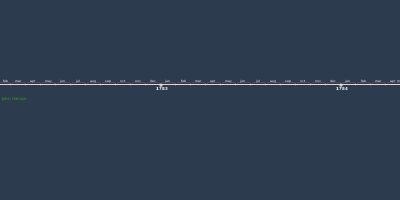jul 17, 1862 - Confiscation Act of 1862
Description:
AKA: Second Confiscation ActA law passed by the United States Congress during the American Civil War. Section 13 of the act formed the legal basis for President Abraham Lincoln's Emancipation Proclamation.
The Confiscation Act was passed on July 17, 1862. The defining characteristic of the act was that it called for court proceedings for seizure of land and property from disloyal citizens (supporters of the Confederacy) in the South as well as the emancipation of their slaves that came under Union control. Under this act, conviction of treason against the U.S. could be punishable by death or carry a minimum prison sentence of five years and a minimum fine of $10,000. This law also stated that any citizen convicted of aiding and abetting any person known to have committed treason against the United States could be imprisoned for up to 10 years and face a maximum fine of $200,000, if convicted. This law specifically targeted the seizure of property of any Confederate military officer, Confederate public office holder, persons who have taken an oath of allegiance to the Confederacy or any citizen of a loyal Union state who has given aid or support to any of the aforementioned traitors to the United States of America. This act helped the Union military because freed slaves could supply the forces with information to gain a strategic advantage over the Confederates.
One slave, March Haynes, began smuggling slaves to the freedom of the Union lines with the help of Union General Quincy Adams Gilmore. In return for his help, Haynes provided Gilmore with "exact and valuable information" on the location of Confederate defenses and the strength of their forces.
Added to timeline:
Date:
jul 17, 1862
Now
~ 163 years ago
